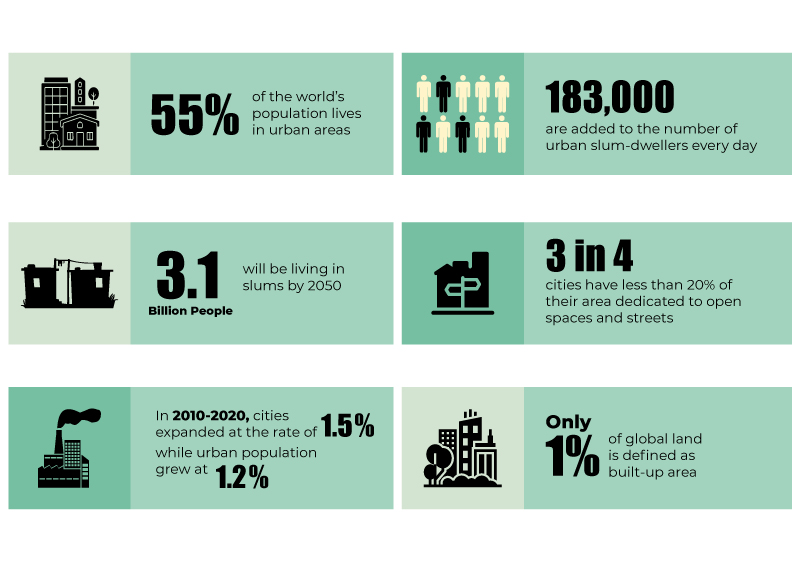The promise of increased opportunities, better lifestyles, and easier access to infrastructure and services has resulted in unprecedented urbanisation over the past 200 years. Around 4.4 billion people live in urban areas today – four times the total global population in 1800. By 2050 an estimated 68% of the population (about 7 billion people) will live in urban areas.
Urban areas are the lifeblood of the economy, accounting for about 70% of the global GDP, but urbanisation on this unprecedented scale has severe implications for social, environmental, and human health. Increased energy and fuel consumption is a significant cause of air pollution, especially in countries that rely primarily on coal and crude oil for energy and transportation. Waste management becomes increasingly challenging with growing populations, and the inevitable expansion of cities is often at the expense of natural forest cover and green spaces that are home to several species of wildlife and play an essential role in balancing our carbon footprint to keep climate change in check. The social inequalities accompanying large-scale urbanisation also lead to increased poverty, unemployment, homelessness and crime.
United Nations Sustainable Development Goal 11 aims to make cities and human settlements inclusive, safe, resilient and sustainable. As per the 2023 report, we still need to catch up to 2020 targets, so achieving the 2030 target will require collective efforts from governments, industries and members of the public.





